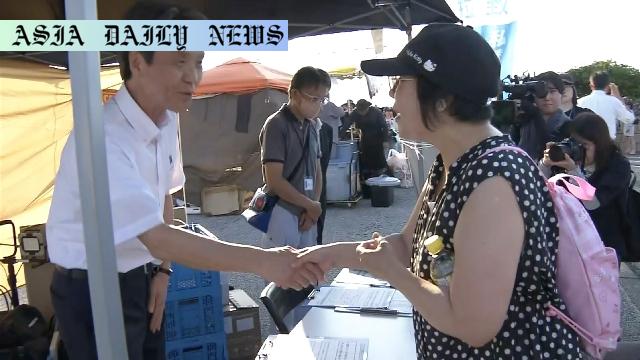Abduction: Japanese ex-abductee organizes signature drive to push for decisive government action to bring back victims held in North Korea.
A former North Korean abductee, Hasuike Kaoru, initiated a signature campaign near his abduction site in Niigata.
Kaoru called for decisive action from the Japanese government to bring back 12 nationals still unaccounted for.
The campaign seeks to remind North Korea and Japan of the unresolved abduction issue.
Families of abducted citizens are aging, emphasizing urgent intervention.

The Initiative to Shed Light on an Unresolved Tragedy
Hasuike Kaoru, a survivor of one of Japan’s darkest human rights violations involving abductions by North Korea, is taking a stand to demand decisive action from the Japanese government. Abducted along the scenic coast of Niigata Prefecture in 1978, Kaoru was held for decades before finally securing his return in 2002. While his eventual return signifies a bittersweet triumph, he hasn’t forgotten the others who remain stranded in an unresolved and painful chapter of Japan’s history. Kaoru recently launched a signature campaign near the site of his own abduction, urging both citizens and officials to remember the plight of those still waiting to come home. Through his efforts, Kaoru aims to emphasize societal unity and proactive government measures, signaling to North Korea that Japan hasn’t abandoned the abductees.
Understanding the Scale of the Issue
Official records from the Japanese government indicate that at least 17 citizens were forcibly taken by North Korean operatives during the 1970s and 1980s. Although five were eventually rescued, the remaining 12 remain unaccounted for, their fates cloaked in mystery. These abductions not only ravaged families but also triggered international outrage, underscoring the need for thorough diplomatic interventions. The urgency is further amplified by the dwindling number of elderly relatives of these victims. With the passing of Akihiro Arimoto, father of abductee Arimoto Keiko, only 89-year-old Sakie Yokota remains as an immediate family member, devoting her life to seeking justice for her daughter, Megumi Yokota. Each passing year underscores the importance of addressing this issue before it fades into bureaucratic obscurity.
A Call to Action Amidst Political Challenges
Kaoru’s plea extends beyond collecting mere signatures; it calls for actionable strategies from the Japanese government to confront one of its more persistent diplomatic challenges. He stresses that Japan cannot allow domestic political distractions, such as the aftermath of the Upper House election, to compromise their commitment to resolving this issue. By applying both domestic and international pressure on North Korea, officials hope to reach settlements that bring closure to the abductees’ families and strengthen global mechanisms protecting human rights. The longevity and depth of this campaign are symbols of resilience and serve as powerful testimony to the cause’s legitimacy. As Kaoru and others continue to rally support, the issue transcends politics, becoming a universal appeal for justice.
Commentary
Reflecting on the Importance of Remembering the Abductees
The story of the North Korean abductees is a stark reminder of the complex geopolitical struggles entwined with deeply personal human tragedies. Kaoru’s initiative to collect signatures is commendable, putting a spotlight on an issue that has tragically faded from international discourse. It is hard to fathom the emotional toll carried by these abductees and their families, many of whom have lived decades bearing the weight of hope interspersed with despair. This campaign highlights that even in the face of such grim odds, resilience and collective solidarity can serve as potent agents for change.
Responsibility of Governments in Upholding Justice
It is now paramount for Japan’s government to prioritize this issue amidst political complexities and competing agendas. Kaoru’s call for concrete measures is not only justified but urgent. Governments hold the responsibility of protecting their citizens and ensuring justice is served, even in cross-border conflicts. While diplomatic negotiations can be fraught with challenges, the plight of families still awaiting closure serves as an undeniable moral imperative. Moreover, demonstrating resolve on this front can send a decisive message regarding Japan’s commitment to addressing human rights violations on the global stage.
The Need to Foster Public Awareness
Campaigns such as Kaoru’s have the power to revive public awareness and reignite discussions around long-standing unresolved issues. They serve as a poignant reminder that societal progress depends on acknowledging past mistakes and actively working toward solutions. It is heartening to see people stop by to sign his petition, showing that grassroots movements can carry formidable weight. To keep the pressure on both local leaders and international actors, public conversations about these abductions must continue to garner attention in schools, media outlets, and diplomatic platforms alike.


